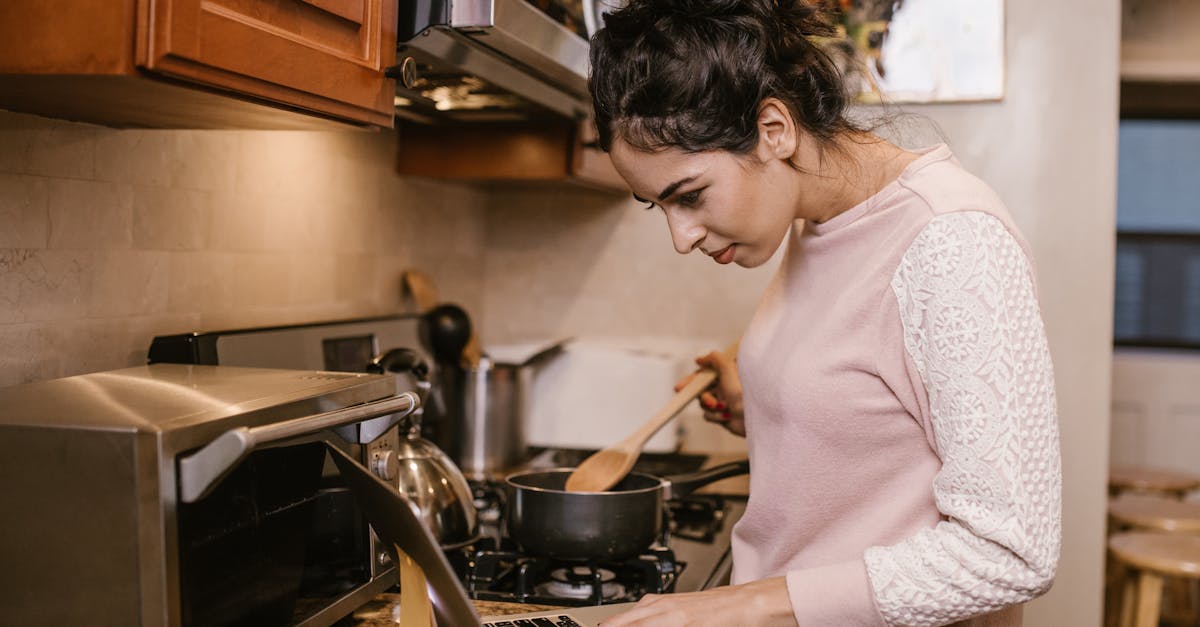
Table Of Contents
Understanding the Return on Investment for Cookery Education
Cookery education in Australia is a significant investment that aspiring chefs and culinary enthusiasts often consider. The tuition fees for cookery courses can vary depending on the institution, program duration, and level of qualification obtained. Understanding the return on investment for cookery education involves evaluating not only the initial cost but also the potential career opportunities and earning potential in the culinary industry. Cooking classes near me offer a valuable opportunity to gain practical skills and knowledge that can lead to a rewarding career in the food and hospitality sector.
For individuals considering pursuing a culinary education, it is essential to assess the long-term benefits and outcomes that the investment in cookery courses can provide. While the upfront costs of tuition fees may seem significant, the potential earning potential and diverse career paths available to graduates can make it a worthwhile investment. Cooking classes near me not only offer hands-on experience but also provide networking opportunities and exposure to industry trends that can enhance the overall return on investment for aspiring chefs and culinary professionals.
Exploring Career Opportunities and Earning Potential in the Culinary Industry
Exploring career opportunities and earning potential in the culinary industry can be an exciting prospect for aspiring chefs. With the right skills and dedication, individuals can pursue a variety of roles such as head chefs, sous chefs, pastry chefs, and more. These positions can offer competitive salaries and the opportunity to work in diverse settings like restaurants, hotels, catering services, and even as personal chefs for private clients. For those interested in honing their craft, enrolling in reputable cookery schools can be a stepping stone towards achieving their career goals. By investing in quality education, individuals can gain the knowledge and practical experience needed to excel in the competitive culinary landscape, leading to higher earning potential and greater job prospects.
For students considering a career in the culinary industry, researching "Cooking Classes near me" can provide valuable insights into local training opportunities and industry trends. Whether aspiring chefs are interested in mastering classic cooking techniques, exploring international cuisines, or delving into pastry arts, attending cooking classes can help them develop their skills and build a strong culinary foundation. Additionally, networking with industry professionals and participating in hands-on training can enhance students' employability and open doors to exciting career pathways within the dynamic world of food and hospitality. By staying informed about the latest trends and continuously refining their culinary skills, individuals can position themselves for success in this rewarding and fast-paced industry.
Evaluating the Reputation of Cookery Schools in Australia
When evaluating the reputation of cookery schools in Australia, aspiring chefs often turn to online platforms and review websites. These resources provide valuable insights into the overall quality of the programs, teaching staff, facilities, and student satisfaction levels. Additionally, seeking recommendations from industry professionals and alumni can offer a more personalized perspective on the strengths and weaknesses of various institutions. For those pondering, "Cooking Classes near me," taking the time to thoroughly research and compare different cookery schools can help in making an informed decision about where to pursue their culinary education.
The reputation of a cookery school can significantly impact a student's learning experience and future career prospects. High-quality institutions with a strong reputation often attract top chefs and industry experts as instructors, provide access to state-of-the-art facilities, and have robust connections with leading restaurants and hospitality establishments. Conversely, attending a cookery school with a less favorable reputation may hinder opportunities for internships, job placements, and networking within the culinary industry. Thus, for individuals considering enrolling in "Cooking Classes near me," it is crucial to prioritize reputation alongside other factors such as tuition fees, curriculum offerings, and geographic location.
Factors to Consider When Choosing a Culinary Institution
When considering a culinary institution in Australia, it is essential to evaluate the location of the school. Opting for a culinary school that is conveniently located can save both time and money as commuting costs can quickly add up over the course of the program. Conducting a search for "Cooking Classes near me" can provide insights into the proximity of various schools and assist in making an informed decision that aligns with personal preferences and practicality.
Furthermore, the faculty and instructors at a culinary institution play a crucial role in the learning experience. Researching the backgrounds and qualifications of the teaching staff can give prospective students confidence in the quality of education they will receive. By attending open houses or information sessions, individuals can interact with faculty members and gain a better understanding of the teaching styles employed at the institution. This firsthand experience can aid in determining if the school's approach resonates with one's learning objectives and aspirations in the culinary field.
Industry Insights on Cookery Tuition Trends
While the cost of cookery tuition in Australia can vary depending on the institution and program, there are some prevailing trends that shed light on the industry's pricing landscape. Many aspiring chefs and culinary enthusiasts often find themselves searching for "Cooking Classes near me", only to be met with a wide range of fees associated with different courses. The tuition fees for cookery programs not only encompass the cost of instruction and materials but also reflect the institution's reputation, facilities, and industry connections.
Cookery schools in Australia are adapting to the evolving demands of the culinary industry, resulting in changes to their tuition structures. As the demand for skilled chefs and hospitality professionals continues to rise, some institutions are investing in cutting-edge facilities and internationally recognised faculty, which can impact the overall cost of education. Understanding these tuition trends can help prospective students make informed decisions when selecting a cookery program that aligns with their career goals and budget constraints.
Forecasting Future Changes in Cookery Education Costs
As the culinary industry continues to evolve and adapt to changing trends, the cost of cookery education is also expected to undergo fluctuations in the future. Factors such as inflation, market demand for skilled chefs, and advancements in culinary technology are likely to impact the tuition fees of cooking classes. Prospective students considering enrolling in cookery programs should stay informed about these potential changes to make well-informed decisions when choosing a culinary institution.
Cooking classes near me may see an adjustment in tuition fees based on the cost of ingredients, facilities, and experienced instructors. Additionally, as the demand for culinary professionals increases, there could be a corresponding rise in the cost of cookery education to meet industry standards and expectations. Understanding these potential future changes in cookery education costs can help aspiring chefs plan and budget effectively for their culinary training.
FAQS
What is the average tuition fee for cookery courses in Australia?
The average tuition fee for cookery courses in Australia can range from AUD 10,000 to AUD 40,000 per year, depending on the institution and the level of qualification.
Are there any scholarships or financial aid available for cookery students in Australia?
Yes, there are various scholarships, grants, and financial aid options available for cookery students in Australia. It is advisable to check with the individual institutions for specific details and eligibility criteria.
Do tuition fees for cookery courses in Australia include additional costs such as materials or equipment?
In most cases, tuition fees for cookery courses in Australia do not include additional costs such as materials or equipment. Students may need to budget separately for these expenses.
Are there any differences in tuition fees between public and private cookery schools in Australia?
Yes, there can be differences in tuition fees between public and private cookery schools in Australia. Public institutions generally have lower tuition fees compared to private institutions.
Can international students expect to pay higher tuition fees for cookery courses in Australia?
Yes, international students typically pay higher tuition fees for cookery courses in Australia compared to domestic students. It is recommended for international students to check the specific fee structures for their chosen institution.


